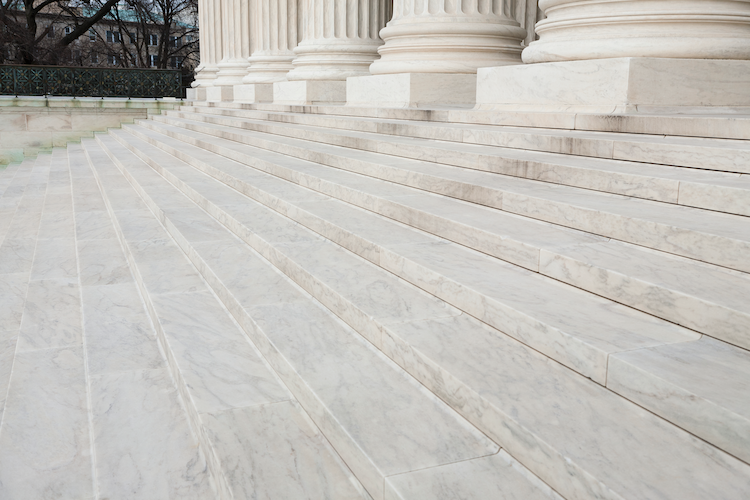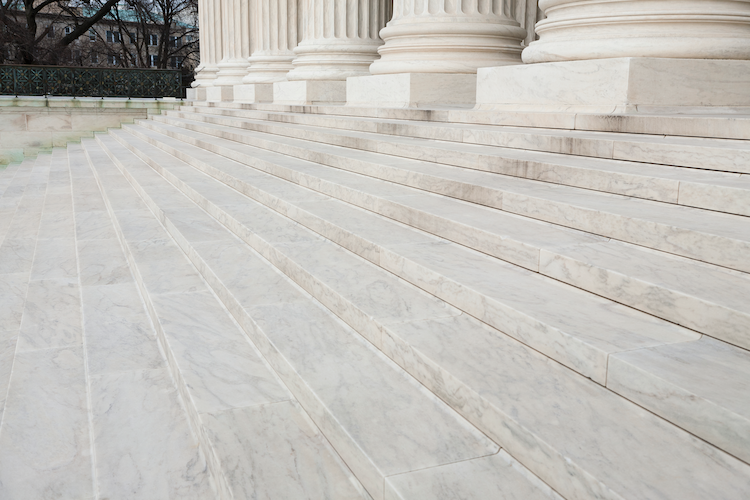Menu
Hot-Topics
February 19, 2026 | SCOTUS Reaffirms Fourth Amendment Standard for Police Responding to Household Emergencies
Month: July 2023

SCOTUS Rules Website Designer Can Refuse Same-Sex Customers
In 303 Creative LLC v. Elenis, 600 U.S. ____ (2023), a divided U.S. Supreme Court held that the First Amendment prohibits Colorado from forcing a website designer to create expressive designs speaking messages with which the designer disagrees. “T...

Supreme Court Clarifies First Amendment Test for True Threats
In Counterman v. Colorado, 600 U.S. ____ (2023), the U.S. Supreme Court held that to establish that a statement is a “true threat” unprotected by the First Amendment, the state must prove that the defendant had some subjective understanding of t...

Supreme Court Rules States Can’t Challenge Federal Immigration Policy
In United States v. Texas, 599 U.S. ____ (2023), the U.S. Supreme Court ruled that Texas and Louisiana lacked standing to challenge a Biden Administration immigration enforcement policy. According to the eight-member majority, “federal courts are ...

SCOTUS Narrows Reach of Identity Fraud Statute
In Durbin v. United States, 599 U.S. ____ (2023), the U.S. Supreme Court narrowed the scope of a federal aggravated identity theft statute. The justices unanimously held that a defendant “uses” another person’s means of identification “in re...
Previous Articles
SCOTUS Decision in Bowe v. United States Is First of the 2026 Term
by DONALD SCARINCI on February 5, 2026
In Bowe v. United States, 607 U.S. ___ (2026), the U.S. Supreme Court held that Title 28 U.S.C. § ...
SCOTUS Rules State Can’t Immunize Parties from Federal Civil Liability
by DONALD SCARINCI on January 29, 2026
In John Doe v. Dynamic Physical Therapy, LLC, 607 U.S. ____ (2025) the U.S. Supreme Court held that...
Supreme Court to Address Racial Discrimination in Jury Selection
by DONALD SCARINCI onWhile the U.S. Supreme Court has concluded oral arguments for the year, it continues to add cases t...
The Amendments
-
Amendment1
- Establishment ClauseFree Exercise Clause
- Freedom of Speech
- Freedoms of Press
- Freedom of Assembly, and Petitition
-
Amendment2
- The Right to Bear Arms
-
Amendment4
- Unreasonable Searches and Seizures
-
Amendment5
- Due Process
- Eminent Domain
- Rights of Criminal Defendants
Preamble to the Bill of Rights
Congress of the United States begun and held at the City of New-York, on Wednesday the fourth of March, one thousand seven hundred and eighty nine.
THE Conventions of a number of the States, having at the time of their adopting the Constitution, expressed a desire, in order to prevent misconstruction or abuse of its powers, that further declaratory and restrictive clauses should be added: And as extending the ground of public confidence in the Government, will best ensure the beneficent ends of its institution.
Awards





